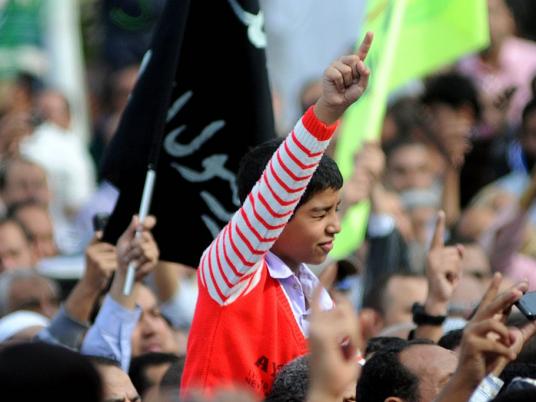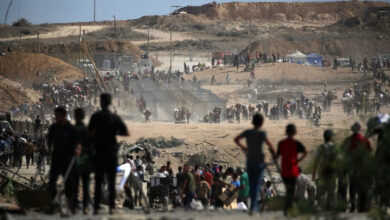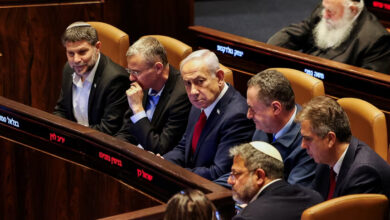
Two Israeli rights groups demanded Sunday that Israel lift fishing restrictions imposed on Gaza after militants fired two rockets across the border, slamming them as "collective punishment."
Israel on Thursday halved the area in which Palestinian fishermen are permitted to work, closed the Kerem Shalom goods terminal and imposed restrictions on people wanting to leave the territory after two rockets hit southern Israel, causing damage but no casualties.
The move, which saw the fishing zone cut from six nautical miles to three, was condemned by the Israeli human rights group B'Tselem as well as by Gisha, which campaigns for Palestinian freedom of movement.
"The decision to once again reduce the fishing range in response to missile fire by armed groups constitutes collective punishment imposed on fishermen for the actions of others," said a statement from B'Tselem.
It said Israel's duty to protect its citizens "cannot justify the harsh damage to fishermen who have done nothing wrong."
"B'Tselem calls on the military to rescind its latest decision and the restrictions imposed on fishermen in the Gaza Strip in the past years, and to permit fishing in the 20 [nautical] miles range, as was set under the Oslo agreements," the group said.
In a letter to Defense Minister Moshe Yaalon, Gisha director Sari Bashi said it was "the second time in less than a month" Israel had blocked civilian travel and goods transfer in response to rocket fire and urged him to lift the restrictions.
"In the last month, there appears to be a new policy toward the Gaza Strip, in which Israel is openly restricting civilian movement to and from Gaza, not because of a concrete security necessity, but rather as a punitive step taken against the civilian population in direct response to fire by combatants," she wrote.
The group condemned the rocket fire as "a blatant violation" of international law, but also noted Israel's obligation to avoid harming civilians, saying the recent steps were "entirely unacceptable."
Israel on Friday resumed full diplomatic ties with Turkey after apologizing for a deadly 2010 raid on a Gaza aid flotilla that left nine Turkish activists dead.
As part of the deal, Prime Minister Benjamin Netanyahu pledged "to work on improving the humanitarian situation" in the Palestinian territories in a phone call with his Turkish counterpart Recep Tayyip Erdogan brokered by US President Barack Obama on a landmark visit.
The radical Palestinian group Islamic Jihad on Sunday slammed the Israeli apology as "poisonous."
It was an "imaginary victory for Turkey and a poisoned apology from Israel … which came under pressure from [US President Barack] Obama," Islamic Jihad leader Khaled al-Batsh said in a statement on the group's Facebook page.
Batsh said the apology was an Israeli attempt to "renew military, security and political cooperation with Turkey … and to prevent it from improving any further than necessary its relationship with the Islamist dimension: Iran and Egypt."
"The suggestion that this is a victory for Turkey is one of lies. It will not result in lifting the blockade [on Gaza] — the one who will benefit is the Zionist enemy," he said.




